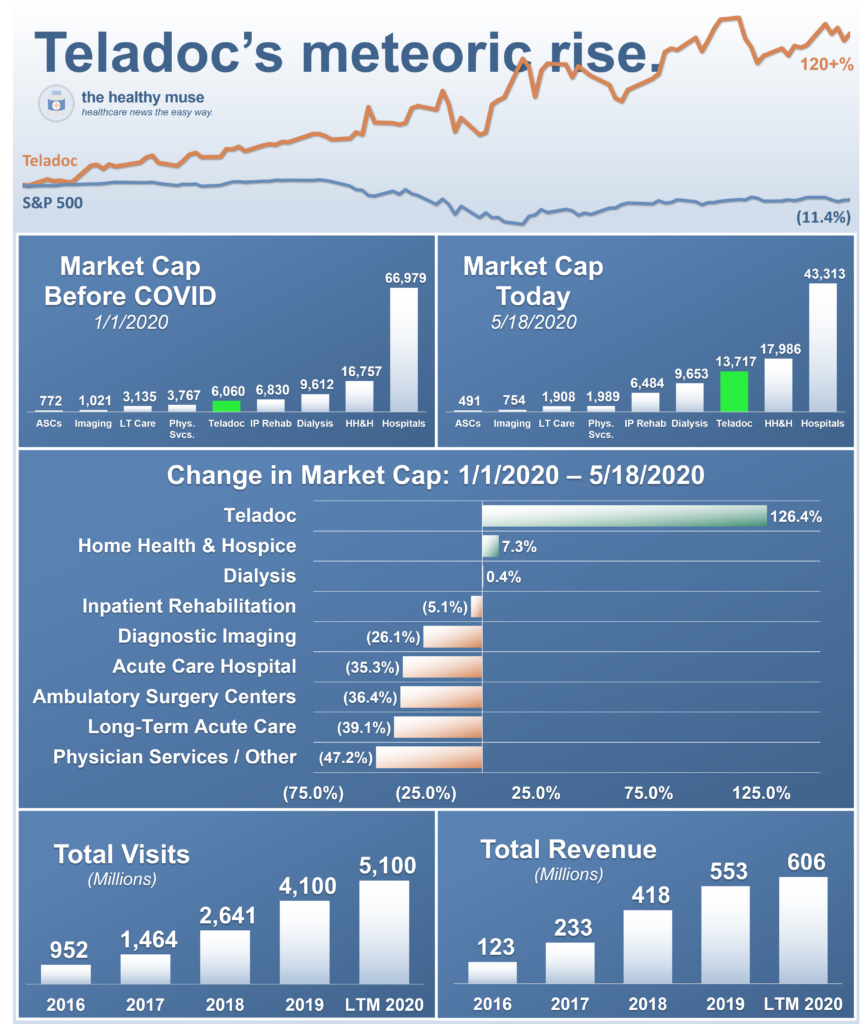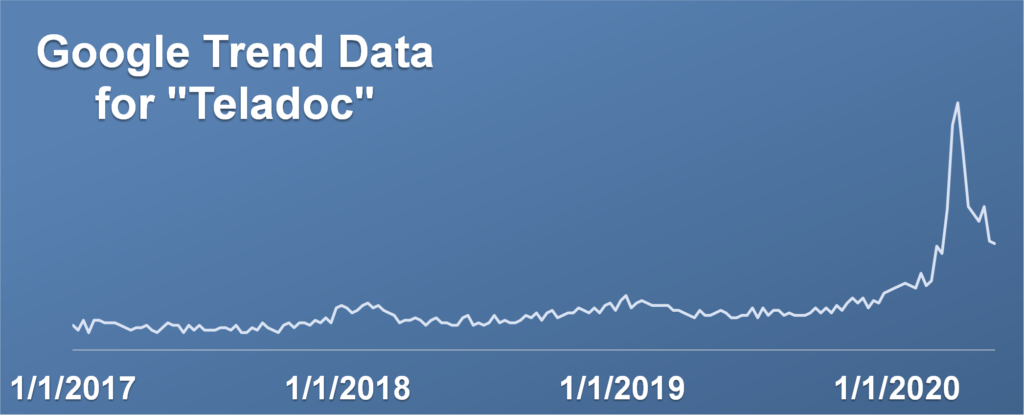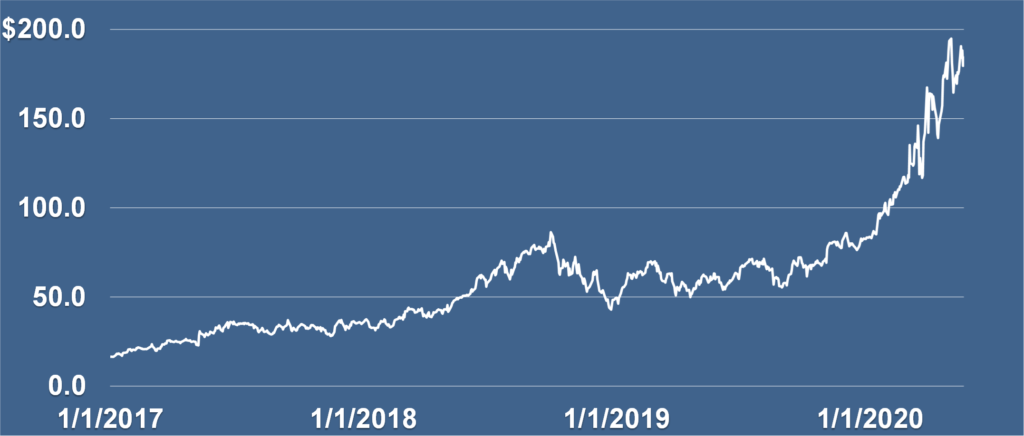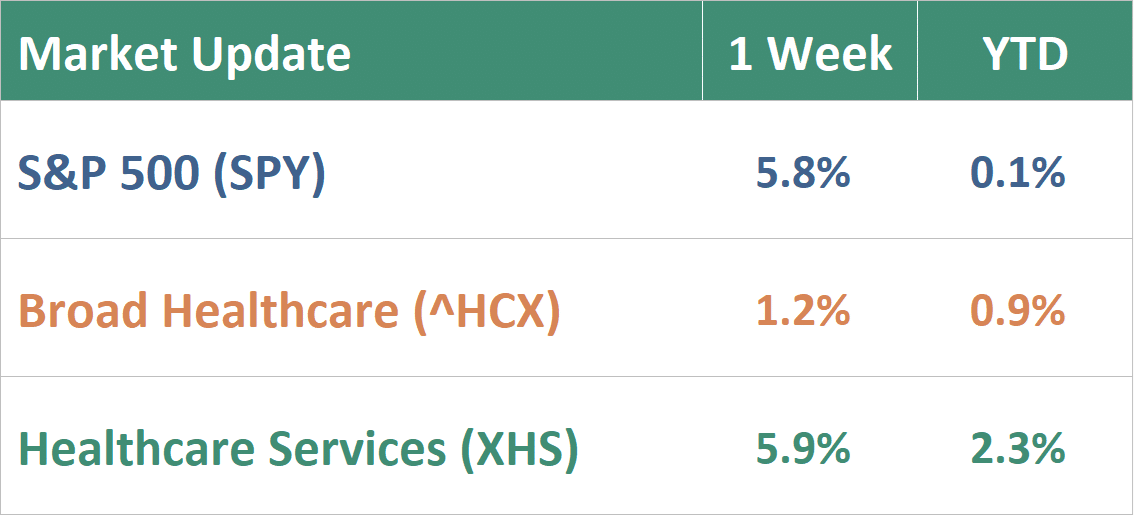
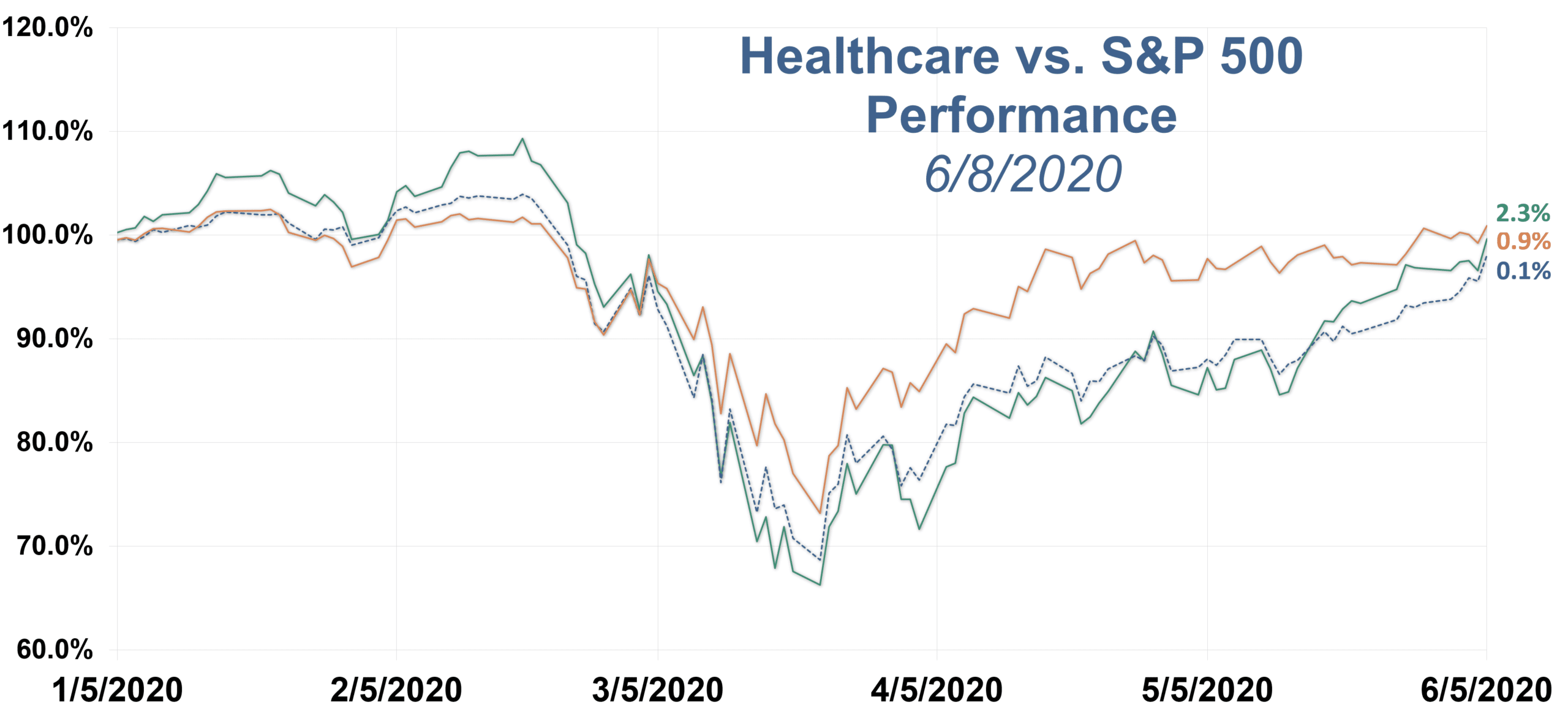
This week’s top healthcare news
Healthcare deals are back.
AstraZeneca wants to join up with Gilead.
Big news emerged in the biotech world this weekend when Bloomberg reported that AstraZeneca approached Gilead about a possible merger last month. (side note: AstraZeneca is the U.K’s biggest drug maker and Gilead isn’t too far behind in the U.S).
- Gilead’s stock rose 3% in early trading on Monday, but the two biotech giants aren’t actively discussing a merger. Long story short: no deal (for now).
Steward Health Care bought out by physicians.
This week, Steward Health Care, a multi-state for-profit hospital operator, was sold to a group of physicians. This transaction is very notable – the system just became the largest physician-owned healthcare company in the U.S.
- Plus, the physicians bought the 90% stake from a private equity group, so it’s really quite the unicorn. Read more about the transaction here.
Speaking of private equity, they received some flak this weekend after Bloomberg found that PE-backed hospitals received bailout funding.
Providers show support for Black Lives Matter protests.
Many providers voiced their support during the Black Lives Matter and police brutality protests over the past week.
- Hashtags like #ThisisOurLaneToo and #WhiteCoatsforBlackLives brought to light the racial disparities present within the physician community.
Don’t forget about the healthcare workers on the front lines of now both the protests and the pandemic.
- Nearly 600 health workers have passed away from COVID-19.
Telehealth: A bubble or a boom?
As Amwell’s telehealth visits increase exponentially, the digital health firm has reportedly filed for an IPO.
- The filing raises big questions: is Amwell trying to sell high right now, or is the firm trying to raise even more capital to increase the growth runway?
McKinsey doesn’t think telehealth is a bubble. In fact, the consulting firm believes that the telehealth industry will reach $250 billion post-COVID.
- Furthermore, many are calling for CMS to extend its telehealth reimbursement waivers beyond COVID.
On the other end of the spectrum, however, you can see states like Colorado trying to restrict and better-define telehealth access.
- The Colorado proposed bill would “prohibit health insurance carriers from imposing specific requirements or limitations on the technologies used to deliver telehealth services; requiring a covered person to have a previously established patient-provider relationship with a specific provider in order to receive medically necessary telehealth services.”
Coronavirus essentials.
Numbers as of the morning of 6/8/2020.
- 1,942,363 infected; 110,514 deaths in the U.S. (View the trend)
- 7,038,942 infected; 403,267 deaths globally. (View more data)
New York reported no new deaths for the first time since 3/11. New Zealand is free of the coronavirus. Meanwhile, Brazil’s health ministry just stopped reporting cases altogether…in a bad way.
Coronavirus hospitalizations are falling, but certain states reopening have seen recent increases in cases (AZ, TX, FL).
Overall exposure to Covid in populations remains low. These are results from seroprevalence studies that are starting to come in, where researchers attempted to screen a representative sample of populations in cities and countries for Covid antibodies, to gauge level of exposure. pic.twitter.com/FIRlbRCwH1
— Scott Gottlieb, MD (@ScottGottliebMD) June 3, 2020
The hydroxychloroquine study fiasco.
This week, the Guardian reported that a major hydroxychloroquine clinical study published in late May used faulty data provided by a sketchy company named Surgisphere.
- The flabbergasting report caused the Lancet and the New England Journal of Medicine to retract the hydroxychloroquine paper altogether.
The study was PREVIOUSLY known as the most comprehensive one to date. So comprehensive, in fact, that the World Health Organization relied on its results to end hydroxychloroquine trials in other parts of the world.
- Not only was the data fabricated – it also delayed TRULY knowing whether or not hydroxychloroquine was effective or not in treating corona.
More Coronavirus stuff.
- A Washington Post and ABC poll found that 7 out of 10 Americans would likely get a coronavirus vaccine. I suppose safety concerns make up the other 30%.
- The Trump administration selected five coronavirus vaccine candidates this week as finalists under its Operation Warp Speed goal of having a vaccine by the end of the year.
- The WHO can’t win, can they? The Associated Press reported in a very comprehensive article that China knowingly delayed in releasing important coronavirus info to the WHO.
- The coronavirus is wreaking havoc on large rural families. (WSJ paywall)
- The COVID exit strategy site shows which states are progressing toward a safe reopening.
Sending coronavirus patients to nursing homes.
In today’s idiotic idea, some states are considering financially incentivizing nursing homes to take more coronavirus patients.
- Politico reports that many of the accepting nursing homes have questionable records of cleanliness.
But let’s just take a common sense step back here. Which population is the most vulnerable to the coronavirus?
Elderly people.
So certain states apparently want to send a virus with a 14% death rate in 75+ year old people, to a location where those people are the most highly concentrated.
- Like we talked about last week, 30,000 coronavirus deaths (about a third of the total deaths) in the U.S. are linked to nursing homes. And we might not even have all of the data.
Biz Hits
- Intermountain is planning to provide acute-level care in patient homes
- Health insurers are getting ahead of their ACA-mandated medical loss ratio minimums by offering premium discounts to employers. (Wait – medical loss ratio? Minimum medical loss ratio? ACA? What’s that?)
- RadNet, the only publicly traded diagnostic imaging company, is seeing an uptick in M&A and hospital JVs now that COVID cooling off a bit.
- $250B of all healthcare spend could be digitized, per McKinsey estimates
- The BLS released the May jobs report this week. Healthcare added over 300,000 jobs, mostly in dentistry. We still have a long way to go, but improvement for now. Notably, hospitals are still losing jobs.
- Kaiser Permanente returned $500 million in CARES act relief funds despite a Q1 loss of $1.1 billion. They’re expecting a bounce-back.
State Hits
- The California AG is seeking more power to wield over hospitals and M&A.
- West Virginia is suing Rite Aid and Walgreens over opioid stuff.
- Molina and Centene turned out the big winners in Kentucky’s Medicaid award
Other Hits
- Trump’s ‘Mar-a-Lago crowd’ played a role in VA’s $16B EHR contract with Cerner: GAO report
- Are health systems planning to offshore certain administrative functions to cut costs?
- COVID-19 is creating a thicket of legal concerns for providers.
Thought-Provoking Editorials
- After my wife died, I was consumed by both grief and paperwork. We must work together to change the medical system. (Time)
- America is giving up on the pandemic. (The Atlantic)
Civil rights & healthcare reads.
- On the minds of BLM protesters: a racist healthcare system. (ProPublica)
- There is no stopping covid-19 without stopping racism. (BMJ Opinion)
- Race and healthcare: recognizing and addressing the issues facing black patients. (Out of Pocket)
Healthy Muse Top Picks.
- The secret, absurd world of coronavirus mask traders and middlemen trying to get rich off government money. (ProPublica)
- Police brutality is our lane, too. (Stat)
Thanks for reading.
Follow me on Twitter.
Save yourself some time by subscribing to our all-in-one newsletter. Subscribers get the first edition – every Monday night.
About the Healthy Muse.
The Healthy Muse was created to educate people on the healthcare system. It’s one weekly e-mail updating you on all the major election news, broader trends, big stories, and policy updates. Learn more about our vision here.
Get smarter and sign up below today.
